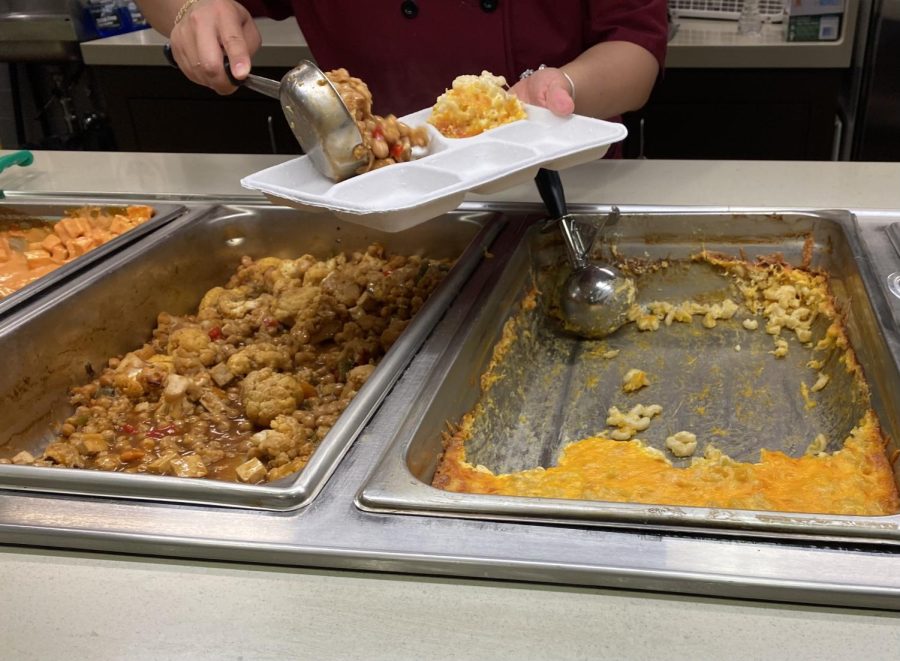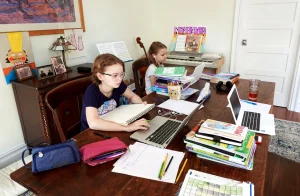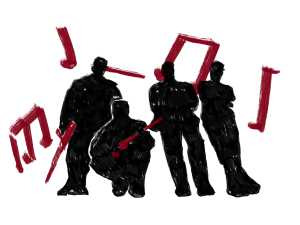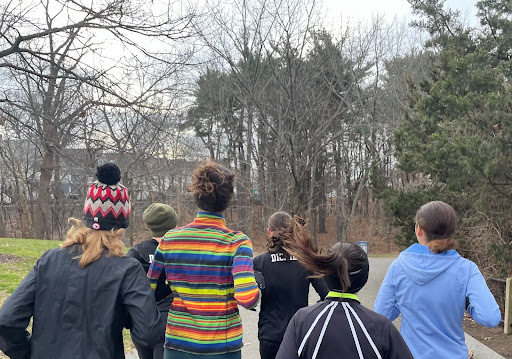Kelp Kraze Sweeps CRLS
CRLS offers an array of healthy, plant-based meal options.
June 24, 2023
On February 8th, CRLS students in the media cafeteria were met with a strange surprise: a table staffed by professional chefs, dispensing free samples of kelp. While students enjoyed the delicious “kelp falafel”, many wondered about the backstory. Students who asked the chefs about it were typically given enthusiastic kelp facts—for instance, kelp can grow up to two feet in a day—but not much more information. Following this mysterious kelp table, kelp burgers, balls, and patties have joined the cafeteria’s meal rotation. So how did kelp, of all foods, manage to infiltrate CRLS?
According to Sustainable Development club member Jing O’Neil ’23, “Mellissa Honeywood [the CPSD food services director] reached out to us because she wanted CRLS to be one of the first schools to sample a new kelp product that was made by North Coast Seafoods and Atlantic Seafarms. She thought we could help promote the product.” A school-wide email on the day after the kelp table included a survey asking for student opinions of kelp foods. According to O’Neil,
Kelp is most likely a more sustainable alternative to high-carbon foods like meat or dairy.
Kelp adherents cite its impressive sustainability benefits. North Coast Seafoods’ website notes, “Kelp farming is carbon-negative and requires no land, irrigation, fertilizer, or pesticides to be grown … Kelp also mitigates the effects of ocean acidification!” However, some other research contradicts these claims. A 2022 study by researchers at the University of Tasmania found that in the big picture, kelp ecosystems may actually produce carbon by providing more food for sea life. Yet kelp is most likely still a more sustainable alternative to high-carbon foods like meat or dairy. Izzy Laskin ’23 commented to the Register Forum, “Cambridge really prides itself on being a leader in sustainability, and actions speak louder than words.”
CRLS students view the kelp mostly positively, focusing on the diversity it adds to the lunch menu. “I feel uplifted by the kelp,” says Phoebe D’Amato ’23 to the Register Forum. D’Amato continues, “It pushes me to try new things and go beyond my comfort zone. I think it’s a pretty awesome innovation.” According to Laskin, “I was initially confused, and then overjoyed at the thought of spicing up my lunch options … I would say I’m pro-kelp, maybe just for the novelty of it. It’s school lunch, so I have low expectations, but I think it tastes fine.”
Other students felt that the kelp movement had gone too far, noting that the English MCAS focused on the benefits of kelp. “I don’t agree with the pro-kelp message,” says Calvin Lewis ’25, stating to the Register Forum the MCAS had a “glorified view” of kelp.
It remains to be seen what kelp’s future at CRLS is. The kelp patties have only been served twice so far, even though other meals repeat more often, so it is unclear whether they are a permanent addition. Who knows—maybe a few years from now, students will eagerly line up for kelp patties every Tuesday instead of pulled pork sandwiches or jerk chicken.










